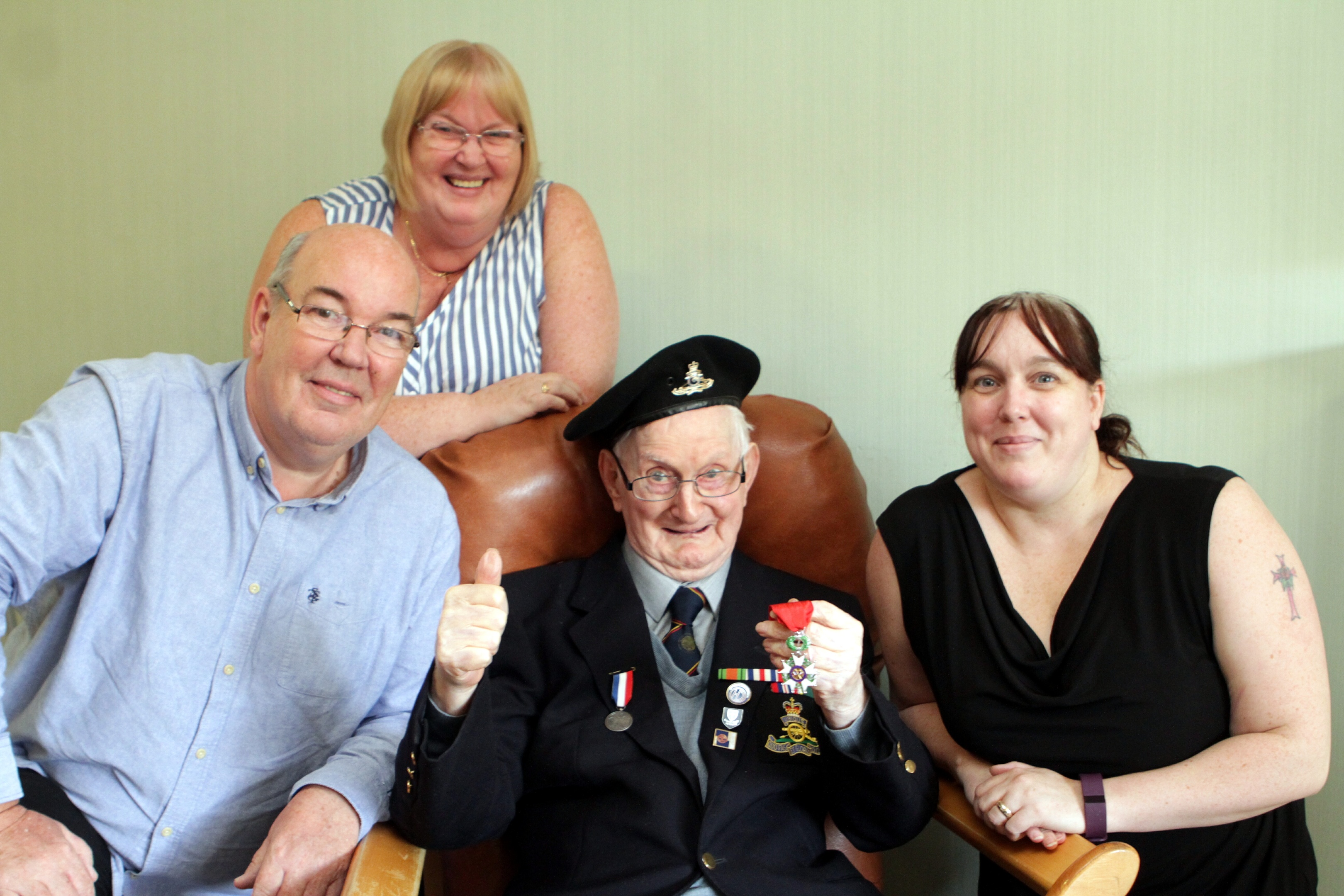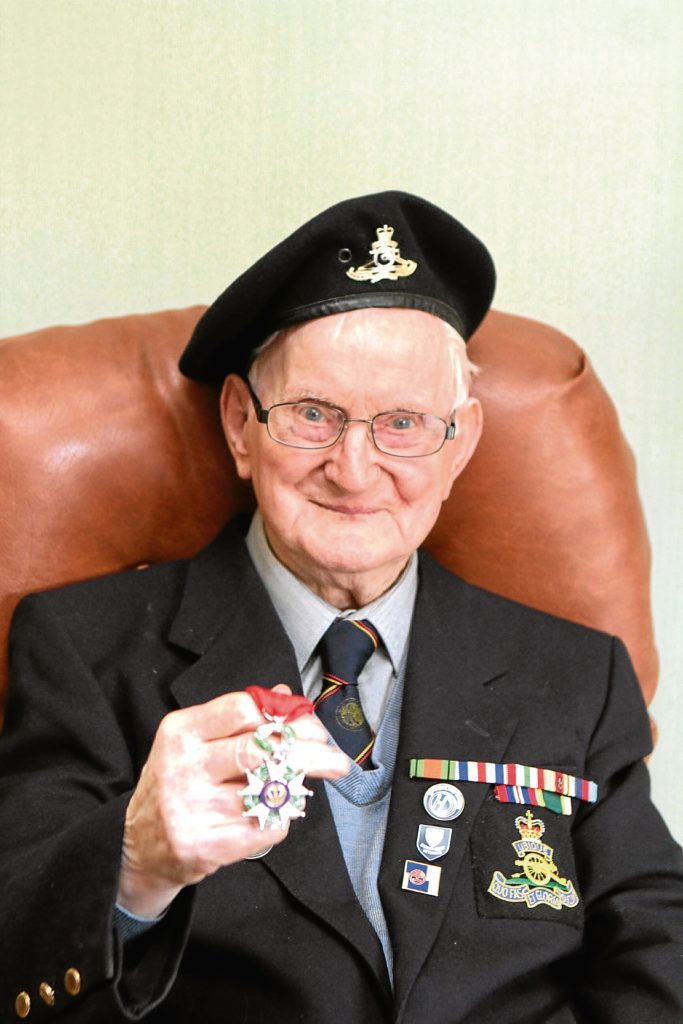It is more than 70 years since the guns fell silent across Europe.
But the French government has recognised a Dundee man for his role in the Second World War.
George Watt served in the Royal Artillery attached to the 51st Highland regiment.
The 96-year-old had previously been recognised for his role in battles of El Alamein and also the Italian Campaign.
He has now been presented with France’s highest military award – the Legion of Honour – for his efforts at the legendary Normandy beaches.
The gunner said it was “unbelievable” to receive the medal.
He added: “I was there from the beginning to the end.”
In an accompanying letter, Sylvie Bermann, ambassador of France to the United Kingdom, said: “As we contemplate this Europe of peace, we must never forget the heroes like you who came from Britain and the Commonwealth to begin the liberation of Europe by liberating France.
“We owe our freedom and security to your dedication, because you were ready to risk your life.”
George’s granddaughter, Kerry Wilkie, 39, said that he had told her stories of watching on as an initial wave of Canadian troops met their death at the hands of German machine-gun fire before his unit was given the order to storm the Juno beach.
She said: “When I was young my grandad wouldn’t talk to me about his experiences in the war.
“Then I told him that I really wanted to know about it and he told me all his stories.
“He said that the Canadians were sent in first and they were all shot down.
“They managed to take the beach because the Germans were outgunned and running out of ammunition.
“Another story he told me was that they ended up being stuck in Italy because the transport boats sank – so he worked alongside the cooks and fed everyone.”
Kerry said that George would not be well enough for an official ceremony to be held but they would celebrate the achievement with him.
She added: “It is amazing to see him honoured like this.
“We are all so proud of what he did and achieved.”
Kerry said that George also refused to talk about the harrowing reality of the horrific concentration camps set up by the Germans during the war.
He returned from combat unscathed, although there were some lucky escapes.
On one occasion a bomb went off in a trench George was in and decapitated the person standing right beside him – but he was unhurt.
But he arrived home sporting a sling after injuring his arm playing football.
After returning from the war, George married Jesse in 1949 and enjoyed 33 years working at the city’s NCR.
They lived in Lochee before moving to Charleston with their three children – Dode, 65, 64-year-old Ian and Norma, 61.
Jesse passed away in March at the age of 90.

